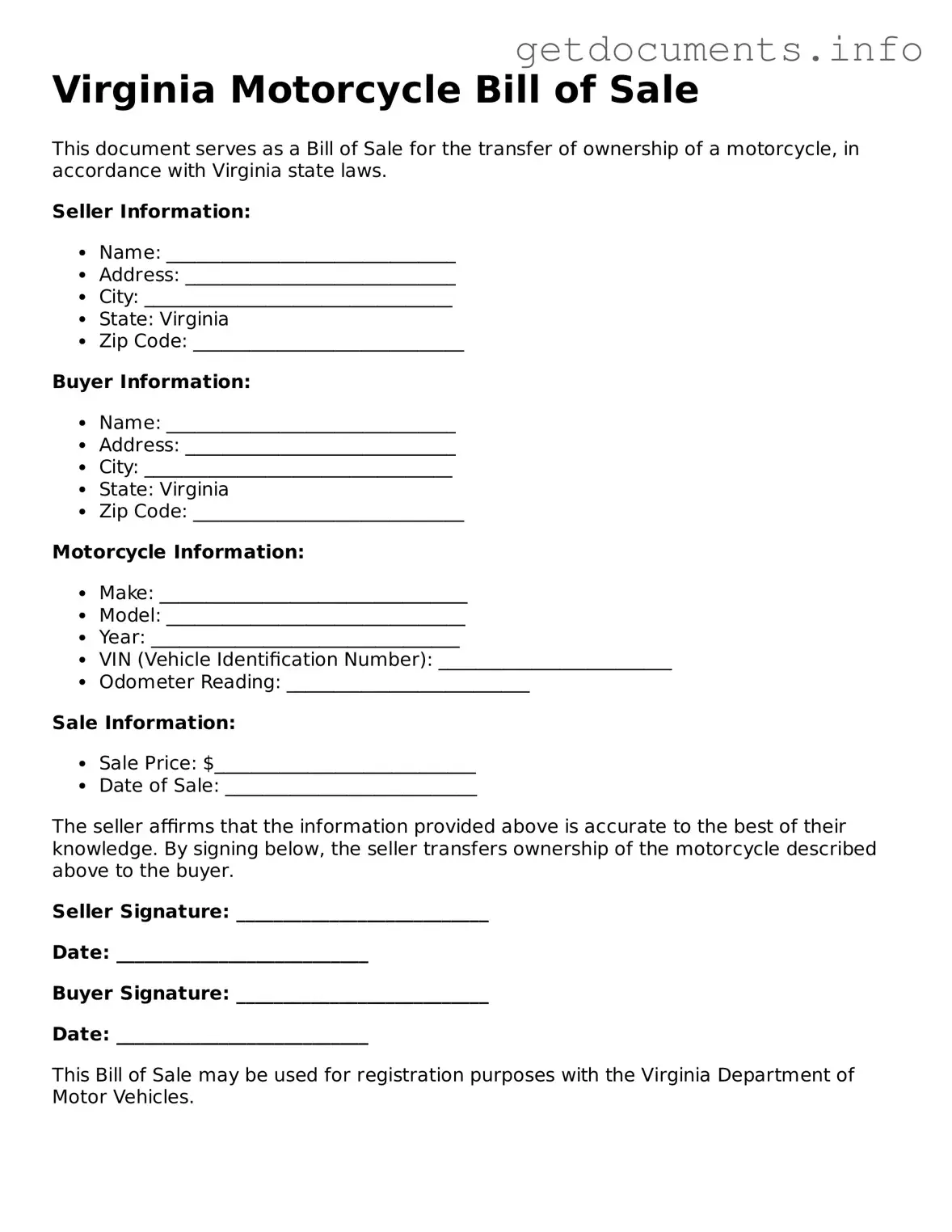Free Motorcycle Bill of Sale Template for Virginia
The Virginia Motorcycle Bill of Sale is a legal document that serves as proof of the sale and transfer of ownership of a motorcycle between a seller and a buyer. This form outlines essential details such as the motorcycle's make, model, year, and Vehicle Identification Number (VIN), along with the purchase price and the parties involved. Completing this form is crucial for both parties to ensure a smooth transaction and proper registration.
Ready to fill out your Virginia Motorcycle Bill of Sale? Click the button below to get started!
Access Motorcycle Bill of Sale Editor

Free Motorcycle Bill of Sale Template for Virginia
Access Motorcycle Bill of Sale Editor
Got places to be? Complete the form fast
Fill out Motorcycle Bill of Sale online and avoid printing or scanning.
Access Motorcycle Bill of Sale Editor
or
⇩ PDF File
